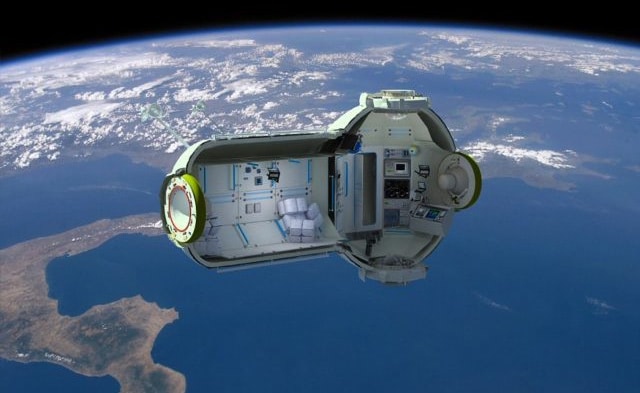Back in the mid-twentieth century, before the first moon landing, people had all sorts of ideas about the golden age of space travel in front of them. Colonize the moon! Fly astronauts to Mars! Take a holiday in space! Decades later, reality still hasn't lived up to any of these sci-fi visions. But at last, several ambitious projects are bringing one of them closer to reality: space tourism might not be a fantasy for much longer.
Orbit the earth in the Aurora Station
At this point, we've been sending astronauts into space for a pretty long time. The idea of space-travel for leisure rather than scientific purposes, though, is also taking off. Experiences like zero-gravity flights exist to simulate the feeling of space travel. But until now, the real thing has been far beyond the layman's reach.
That might not be the case much longer. If you're eager for the real austronaut experience, Orion Span has got you covered. Within their Aurora Station, 4 passengers will soon be roaming in space for a 12 day-trip at 200 miles above the earth. Founder Frank Bunger shares their motivation: "We want to get people into space because it’s the final frontier for our civilization".
Sounds intriguing, right, just a casual orbit around the earth every 90 minutes in this luxury space-station? Ready to reserve a seat? Refundable deposits can be made now, starting at 80,000$. This holiday of the near future comes with a charismatic cheque of 9.5 milion a passenger, amounting to about 791,666$ a night. Definitely a promising development towards our sci-fi visions, but perhaps still slightly beyond the layman's reach.
Blue Origin: To space and back in minutes
Is a 12 day trip a bit much for your busy calendar? Amazon CEO Jeff Bezos founded private spaceflight company Blue Origin back in 2000. Initially sticking to sub-orbital flight, since 2014 the company has had its sights set on more ambitious goals. Now, their ongoing plan is to build their own launch vehicle which can take passengers safely to the edge of Earth's atmosphere and back in just a few minutes.
Bezos says that the vehicle, aside from allowing passengers to experience zero gravity, also affords exceptional views of the globe. "Every seat's a window seat," he claims. Blue Origin are aiming to receive their first paying customers by 2020. The vehicle recently enjoyed a successful test launch, manned by one "Mannequin Skywalker", which you can watch below.
https://www.youtube.com/watch?v=6ZJghIk7_VA
Welcome to the Hotel Cosmologia
Blue Origin and Orion Span aren't the only innovators in space tourism. Richard Branson's Virgin Galactic aim to provide similar services, but haven't yet set a date on when they will be able to do so. Russian company KosmoKurs is also aiming for a 2020 launch.
The very first space tourism trip already took place in 2001, when buisinessman Dennis Tito visited the International Space Station (ISS). By 2022, this station is planning to accommodate space tourism with nothing less than a brand new luxury hotel aboard. Russia's space agency is planning the project, which they estimate will cost hundreds of billions of dollars to realize. To recoup the investment, the plan is to charge a pretty high price: somewhere in the region of $40-60 million for a trip. You might have to save up for this vacation a little longer than usual.
The ISS hotel module does look pretty luxurious though. There's wifi, and a gym. And included in the price is the opportunity to go on a space-walk with real astronauts. Worth the price? Well, at this point that's more of a theoretical question than anything.
For now, the project is still up in the air, without a clear launch window and with all sorts of potential technical problems. But what's exciting is that these kinds of projects, whether they get off the ground or not, are steadily pushing the idea of space tourism from the realm of fantasy into reality. In the next nature, the future is shaped by the scope of our imaginations.

Share your thoughts and join the technology debate!
Be the first to comment